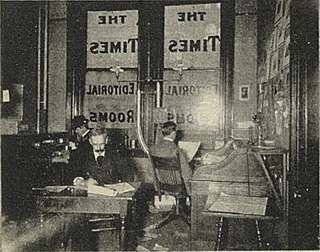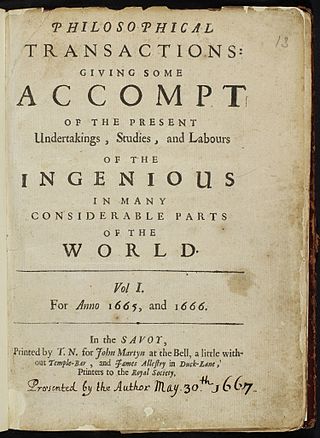Related Research Articles

In academic publishing, a scientific journal is a periodical publication intended to further the progress of science, usually by sharing findings from research with readers. They are normally specialized based on discipline, with authors picking which one they send their manuscripts to.

Editing is the process of selecting and preparing written, photographic, visual, audible, or cinematic material used by a person or an entity to convey a message or information. The editing process can involve correction, condensation, organisation, and many other modifications performed with an intention of producing a correct, consistent, accurate and complete piece of work.

A ghostwriter is a person hired to write literary or journalistic works, speeches, or other texts that are putatively credited to another person as the author. Celebrities, executives, participants in timely news stories, and political leaders often hire ghostwriters to draft or edit autobiographies, memoirs, magazine articles, or other written material.

APA style is a writing style and format for academic documents such as scholarly journal articles and books. It is commonly used for citing sources within the field of behavioral and social sciences, including sociology, education, nursing, criminal justice, and anthropology, as well as psychology. It is described in the style guide of the American Psychological Association (APA), which is titled the Publication Manual of the American Psychological Association. The guidelines were developed to aid reading comprehension in the social and behavioral sciences, for clarity of communication, and for "word choice that best reduces bias in language". APA style is widely used, either entirely or with modifications, by hundreds of other scientific journals, in many textbooks, and in academia. The current edition is its seventh revision.
A technical writer is a professional information communicator whose task is to transfer information between two or more parties, through any medium that best facilitates the transfer and comprehension of the information. Technical writers research and create information through a variety of delivery media. Example types of information include online help, manuals, white papers, design specifications, project plans, and software test plans. With the rise of e-learning, technical writers are increasingly becoming involved with creating online training material.

Scientific literature comprises academic papers that report original empirical and theoretical work in the natural and social sciences. Within a field of research, relevant papers are often referred to as "the literature". Academic publishing is the process of contributing the results of one's research into the literature, which often requires a peer-review process.
Freelance, freelancer, or freelance worker, are terms commonly used for a person who is self-employed and not necessarily committed to a particular employer long-term. Freelance workers are sometimes represented by a company or a temporary agency that resells freelance labor to clients; others work independently or use professional associations or websites to get work.
In scientific writing, IMRAD or IMRaD is a common organizational structure. IMRaD is the most prominent norm for the structure of a scientific journal article of the original research type.
Many countries have measures in place to limit advertising by pharmaceutical companies.
Technical communication is communication of technical subject matter such as engineering, science, or technology content. The largest part of it tends to be technical writing, though importantly it often requires aspects of visual communication. Technical communication also encompasses oral delivery modes such as presentations involving technical material. When technical communication occurs in workplace settings, it's considered a major branch of professional communication. In research or R&D contexts, it can overlap with scientific writing.
The American Medical Writers Association (AMWA) is a professional association for medical communicators, with more than 4,000 members in the United States, Canada, and 30 other countries. AMWA is governed by a board of directors composed of the elected officers, 6–8 at-large directors, and the chapter advisory council chair. AMWA has regional chapters and provides local networking opportunities throughout the United States and Canada. The association was founded in 1940 by physicians interested in improving the quality of medical writing and editing. The current president is Gail Flores, PhD.
A medical writer, also referred to as medical communicator, is a person who applies the principles of clinical research in developing clinical trial documents that effectively and clearly describe research results, product use, and other medical information. The medical writer develops any of the five modules of the Common Technical Document. The medical writers also ensure that their documents comply with regulatory, journal, or other guidelines in terms of content, format, and structure.
The American Society of Journalists and Authors (ASJA) was founded in 1948 as the Society of Magazine Writers, and is the professional association of independent nonfiction writers in the United States.
Pharmaceutical publication planning is the activity of planning the dissemination of scientific and clinical data on a drug to healthcare professionals at scientific congresses and medical society meetings and in peer reviewed medical journals.
Scholarly communication involves the creation, publication, dissemination and discovery of academic research, primarily in peer-reviewed journals and books. It is “the system through which research and other scholarly writings are created, evaluated for quality, disseminated to the scholarly community, and preserved for future use." This primarily involves the publication of peer-reviewed academic journals, books and conference papers.
The European Association of Science Editors is a non-profit membership organisation for people interested in science communication and editing. Founded in 1982, in France, EASE now has an international membership.

Medical journalism is news reporting of medical news and features. Medical journalism is diverse, and reflects its audience. The main division is into (1) medical journalism for the general public, which includes medical coverage in general news publications and in specialty medical publications, and (2) medical journalism for doctors and other professionals, which often appears in peer-reviewed journals. The accuracy of medical journalism varies widely. Reviews of mass media publications have graded most stories unsatisfactory, although there were examples of excellence. Other reviews have found that most errors in mass media publications were the result of repeating errors in the original journal articles or their press releases. Some web sites, such as Columbia Journalism Review and Hippocrates Med Review, publish and review medical journalism.
Medical ghostwriters are employed by pharmaceutical companies and medical-device manufacturers to produce apparently independent manuscripts for peer-reviewed journals, conference presentations and other communications. Physicians and other scientists are paid to attach their names to the manuscripts as though they had authored them. The named authors may have had little or no involvement in the research or writing process.
An authors' editor is a language professional who works "with authors to make draft texts fit for purpose". They edit manuscripts that have been drafted by the author but have not yet been submitted to a publisher for publication. This type of editing is called author editing, to distinguish it from other types of editing done for publishers on documents already accepted for publication: an authors' editor works "with an author rather than for a publisher". A term sometimes used synonymously with authors' editor is "manuscript editor" which, however, is less precise as it also refers to editors employed by scholarly journals to edit manuscripts after acceptance.
Language professionals are individuals who support authors in publishing by helping produce documents of appropriate scope and quality. Their role is particularly important in the research setting, especially when the authors are not native English speakers but are required to publish in English for international communication. The work of language professionals falls within the language industry.
References
- ↑ Hall, Geoff. "The history of EMWA: personal and possibly unreliable recollections" . Retrieved 3 March 2016.
- ↑ "About the Medical Writing journal" (PDF). Medical Writing. 21 (1): 3. 2012. doi:10.1179/204748112X13303569555349 . Retrieved 13 February 2016.
- ↑ "Profile: An interview with Phil Leventhal". Medical Writing. 25 (1). March 2016. Retrieved 1 September 2016.
- ↑ Jacobs, Adam; Wager, Elizabeth (2005). "European Medical Writers Association (EMWA) guidelines on the role of medical writers in developing peer-reviewed publications" (PDF). Current Medical Research and Opinion. 21 (2): 317–321. doi:10.1185/030079905X25578. PMID 15802003. S2CID 11419403 . Retrieved 15 December 2021.
- ↑ "CER Writer for EU MDR (Don't Make These Costly Mistakes)". citemedical.com. 27 January 2021.